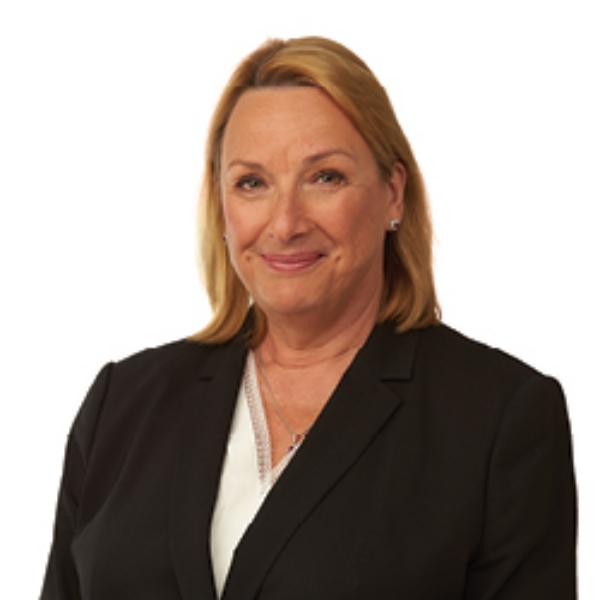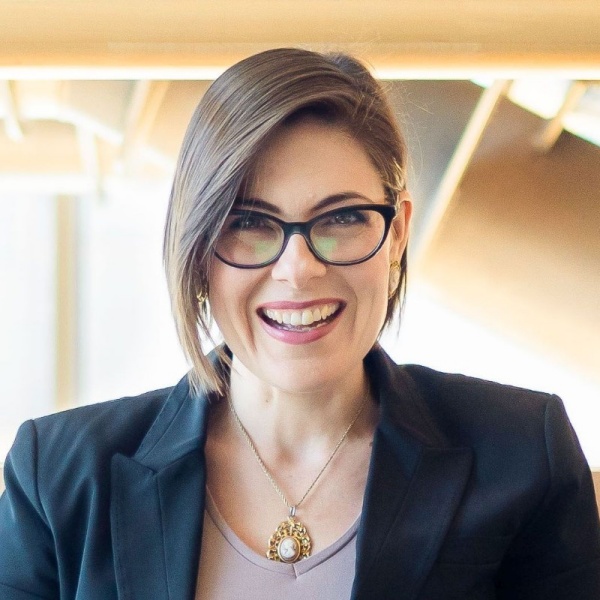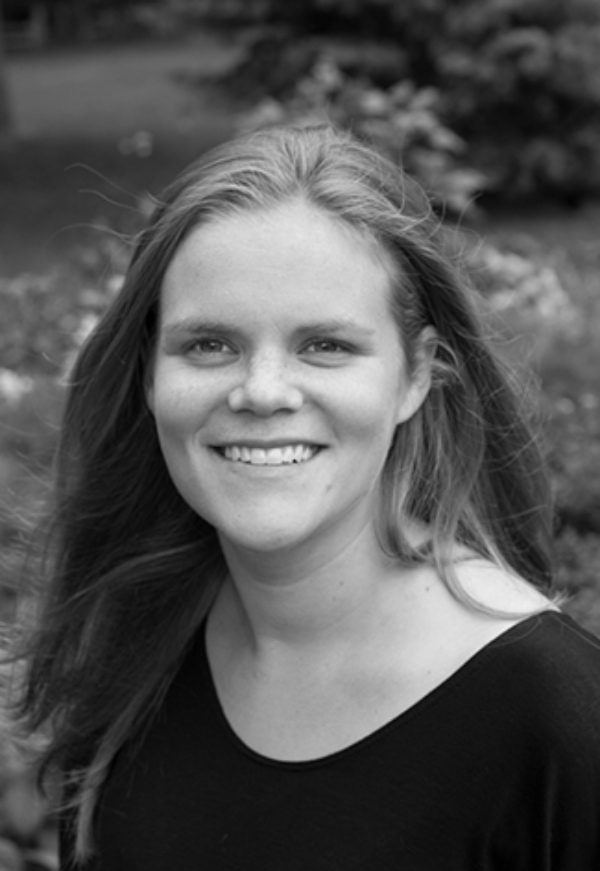Featured Guest
You’ll find this guest among our growing roll of Urban Champions.
-

Sonja Foley
Co-founder, Maturn
-

Michi Komori
Director, Content acquisitions, Planetvu
-

Maureen Jensen
Prosperity Project Founder & former Chair and CEO, Ontario Securities Commission
-

Kadie Ward
Commissioner and CAO, Pay Equity Commission, Ontario Ministry of Labour, Training & Skills Development
-

Brooke Richardson
President, Association of Early Childhood Educators of Ontario
Key
Takeaways
A roundup of the most compelling ideas, themes and quotes from this candid conversation
Read CUI’s conversation primer, which provides a snapshot of what we know today about gender and COVID in Canada’s cities
Rethinking maternity leave, Sonja Foley
We talk a lot about the wage gap and the power gap, but those conversations never include the maternity gap. Mothers are 8.2 times (820%) less likely to receive a promotion compared to women without children, and their starting salaries are 7.9% lower than those of women without children. Sonja Foley, intergovernmental relations director at the City of Vancouver, is launching a project that treats maternity leave not as a sudden removal from and jarring reintroduction to the workplace, but instead as a period of extended yet connected leave. The experience of having a child can be isolating and overwhelming, and the pressures women face to perform well in both motherhood and the workplace can be devastating. Women and mothers are invaluable to the creation and evolution of resilient businesses. Rethinking maternity leave is an opportunity to keep new mothers connected with their work and reintegrate them empathetically, treating their absence and maternal responsibilities as benefits rather than liabilities.
Intersectional data collection, Maureen Jensen
Maybe “collecting intersectional data” doesn’t sound like a big idea, but what gets measured gets noticed, and what gets noticed gets changed. While it is a truth universally acknowledged that women deserve the same chances and lives men have access to, gender itself is not a sufficient measure to track the gains women are making (or losing) in our society. Race, socio-economic background, region and culture are all factors in how women fare in the workplace and how high up the ladder they are able to climb. Women are half the population but hold less than 20 percent of executive positions in Canada, and women of colour, are barely represented in the figure. Gender and race-based data must be gathered. Setting targets for female representation in the workforce, as well as setting and publicly disclosing targets for racialized women in executive and board positions, is a strong start, but deepening and broadening the talent pool throughout the business world with readily available skills development is also required so that women can be prepped to fill and keep these positions.
Economic empowerment of women, Michi Komori
Everyone has blind spots and biases that can impact our decision making without our conscious knowledge. Blind spots in the eyes of people in power have a huge negative impact on women in the business world. Not only are women less likely to approach banks for loans, but banks are biased against women-owned businesses and have been shown to require much more proof of traction before approving their applications, compared to male-owned businesses. As we look to build economic and societal systems that use regenerative rather than extractive capital, we have to ask how can we empower women to build companies that embrace these models, so everyone thrives? The answer is in community interaction. Removing barriers to women’s prosperity relies on empathy and trust, which can be built from the ground up within communities. Focusing on regional impact investing and prioritizing involving local stakeholders will create opportunities for long-term prosperity as businesses focused on raising up women and nonbinary people see the ripple effects of such work. We can choose not to perpetuate the old rules, and intentionally invest in a future where nobody is left behind.
Hiring Indigenous women and girls, Sheila North
Like several on this list, this may not sound like a big idea at first. However, we are simply not seeing the hiring and retention of Indigenous women right now. Shutting this group out of the job market keeps Indigenous women vulnerable, feeding into an insidious cycle. Call to Action 92 of the TRC asks corporations to monitor their policies for clauses that might impact who they hire and who they keep on. For example, are you shutting out certain groups from success at their jobs by prioritizing experience over education? Requiring certain education levels can limit experienced workers, particularly Indigenous workers who often have had less access to formal education. At the moment, Indigenous women and girls are starting from way behind the starting line. Rather than asking them to find their own pathways to success, starting to offer them tools to access and retain meaningful work will ripple out into healthier families and communities. It’s time to start building ships: allyships, mentorships and partnerships to empower Indigenous women and girls to be entrepreneurs, workers and mentors to other women. The equitable hiring and training of Indigenous women is absolutely key to economic recovery and reconciliation.
Childcare, Brooke Richardson
The pandemic has radically increased the awareness that we need to start thinking collectively rather than individualistically and accept that we have a core responsibility to one another. The current model of childcare is not working, and without urgent funding there will be even less available childcare in Canada than there is now. We have the opportunity at this moment to rethink the provision of childcare services. Childcare currently meets the needs of few women and is nearly entirely inaccessible to many women whose requirements are different from what is perceived as “the norm”. This is unacceptable. A pan-Canadian childcare system has already been announced, but the initiative must be developed in conjunction with women from diverse experiences and backgrounds such as nonstandard work hours and racialized communities, not just able-bodied 9-to-5 working women. Where the money to develop this system goes and how it will be spent is also very important. Children and families deserve responsive, high-quality childcare within the public infrastructure, and the development of that infrastructure can itself jumpstart the economic recovery of women care workers and educators.
Making women their own storytellers, Kadie Ward
When women participate equally and are recognized for the contributions they make, their organizations and communities flourish. But not only this, when women are included in the story of their organizations, the narrative itself changes. Men talk more than women in nearly every professional context from boardrooms to media panels. There is a widespread and continuing culture of sidelining and silencing women that makes it more difficult for our ideas to be recognized, our contributions to be uplifted, and even our salaries to be equalized to those of men. While the past few decades have seen a drastic increase in women’s contributions to and visibility in most professional fields, more needs to be done to center and uplift women’s voices if wage equity, among many other goals, is to be achieved. Policymakers must continue to create legislation and programs that focus on women’s economic justice and closing the gender wage gap, and institutions must show enthusiastic support for women to return to the labour market. If gaps go unnoticed, they go unfilled. For women to truly become equitable in the workforce, we must embrace talking loudly about our positions and barriers.
Full Panel
Transcript
Note to readers: This video session was transcribed using auto-transcribing software. Manual editing was undertaken in an effort to improve readability and clarity. Questions or concerns with the transcription can be directed to events@canurb.org with “transcription” in the subject line.
Full Audience
Chatroom Transcript
Note to reader: Chat comments have been edited for ease of readability. The text has not been edited for spelling or grammar. For questions or concerns, please contact events@canurb.org with “Chat Comments” in the subject lin
From Canadian Urban Institute: You can find transcripts and recordings of today’s and all our webinars at https://canurb.org/citytalk
00:17:36 Canadian Urban Institute: Welcome! Folks, please change your chat settings to “all panelists and attendees” so everyone can see your comments. Attendees: where are you tuning in from today?
00:18:15 Deborah Edoo: Oakville
00:18:19 Anne Antenucci: Thunder Bay Ontario Canada. Located in Northwestern Ontario. I”m the Co-chair of Women in politics Northwestern Ontario
00:18:26 Wendy Koo: Calgary, AB
00:19:25 Canadian Urban Institute: Today’s session is hosted jointly by the Canadian Urban Institute and the Pay Equity Commission of Ontario, and made possible by the generous support of Libro Credit Union and Advanis.
00:19:38 Toby Greenbaum: Toby from Ottawa
00:19:47 Kate Graham: Hi from London Ontario!
00:20:10 Sarah Kaplan: Greetings all! Sarah Kaplan zooming in from Cape Cod, Massachusetts which is the traditional land of the Wampanoag and Nauset peoples.
00:20:14 Canadian Urban Institute: MIND THE GAP: The Post-COVID Gender Gap in Canada’s Cities: https://canurb.org/wp-content/uploads/Mind-The-Gap-CUI.pdf
00:20:35 Rutendo Madzima: Hello from the unceded ancestral lands of the Lheidli Tenneh in Prince George
00:20:53 Matthew from St. Catharines: Hi there from Matthew in St. Catharines
00:21:11 Sydney Taylor: Hi everyone from Toronto!
00:21:42 Katy Boychuk – Libro Credit Union: Thank you everyone for joining us today!
00:21:50 Katy Boychuk – Libro Credit Union: Welcome Sonja!
00:21:53 Canadian Urban Institute: Meet our panel: Sonja Foley, Director of Intergovernmental Relations Director and Strategic Partnerships, City of Vancouver @SonjaBFoley https://www.linkedin.com/in/sonjabaikogli/ Maureen Jensen, Prosperity Project Founding Visionary & former Chair and Chief Executive Officer, Ontario Securities Commission https://www.linkedin.com/in/maureen-jensen-846a1136/ Michi Komori, Prosperity Project Founding Visionary & Innovation and Sustainability Consultant https://www.linkedin.com/in/michi-komori-5259357/ Sheila North, Manitoba Keewatinowi Okimakanak Grand Chief @TheSheilaNorth https://www.linkedin.com/in/sheila-north-45a2615b/
00:22:07 Canadian Urban Institute: Brooke Richardson, President, Association of Early Childhood Educators of Ontario https://www.linkedin.com/in/brooke-richardson-b4363923/?originalSubdomain=ca Kadie Ward, Commissioner and Chief Administrative Officer, Ontario, Ministry of Labour, Training and Skills Development @StrongCities https://www.linkedin.com/in/kadieward/ Carmina de Young, Entrepreneur and Fashion Designer at Carmina de Young Fashion Design Inc. @Carminadeyoung https://www.linkedin.com/in/carmina-de-young-54089810/
00:29:55 Abigail Slater (she/her): So important
to collect disaggregated data. As Canadians we have been reluctant to actually look at this in the false belief that we do not have systemic issues around race and gender.
00:32:21 Anne Antenucci: I also believe that more needs to be done to get women into elected roles and policy writing roles. Everything starts and ends with laws and policies. And if only men (and white men in most cases) are writing the policies….we will be left out.
00:33:30 Matthew from St. Catharines: Agreed!!!
00:34:35 Abigail Slater (she/her): These are terrible statistics. Board and executive diversity should be required to be listed.
00:47:27 Canadian Urban Institute: Read the Truth and Reconciliation Commission of Canada Calls to Action: https://trc.ca/assets/pdf/Calls_to_Action_English2.pdf
01:01:00 Rutendo Madzima: Its important to make our voices heard and challenge the view that we are in a post-gender era here, these statistics and issues should be more visible . We should commemorate International Women’s Day, 16 Days of Activism etc. Ensure policies mainstream gender and have as much gender activism as developing nations.
01:04:02 Canadian Urban Institute: Detailed breakdown of gender wage gap by province (data taken from StatsCan) o BC: 18.6% (2018), 20% (1997) o AB: 17.6% (2018), 24% (1997) o SK: 15.3% (2018), 20% (1997) o MB: 11.6% (2018), 19% (1997) o ON: 12.2% (2018), 18% (1997) o QC: 10% (2018), 16% (1997) o NB: 7.4% (2018), 20% (1997) o PEI: missing data o NS: 9.4% (2018), 19% (1997) o NL: 8.4% (2018), 22% (1997) o CAN: 13.3% (2018), 18% (1997) Data speak to evolution of the gender gap in average hourly wages since 1998 for both full- and part-time workers in the 25 to 54 age group. StatsCan research examines hourly wages, as opposed to other measures of earnings, to highlight gender differences in pay for an equal unit of work.
01:04:31 Petra Mutch: Women entrepreneurs also experience a wage gap of 27%. Research shows women entrepreneurs have less take home pay as entrepreneurs than male counterparts. Part of that Is due to fact that undercapitalization of women-owned enterprises which results in their businesses being small,er, longer. We don’t talk enough about income gap in women’s entrepreneurship space when we talk about pay gaps.
01:06:54 Petra Mutch: @katie agree we need to elevate women’s stories and in order to do that, we need to start building a strong women-led/majority owned media enterprise landscape in Canada. Media outlets including indie media are still 90% led /owned by (white) men. We need a strong feminist media space to publish those stories
01:07:24 Anne Antenucci: But how do we get into those positions? I can talk all day (I’m pretty good at it) but unless I”m in the building where decisions are being made, it’s useless
01:07:50 Petra Mutch: We try at www.liisbeth.com but we are tiny. Would like to see many more women-led, and in particular feminist media outlets to tell the stories of women from their point of view, via an intersectional feminist lens.
01:08:41 Sarah Kaplan: Amazing interventions by all of you! Thanks so much.
01:09:02 Sydney Taylor: Thank you all for sharing your ideas!
01:09:18 Anne Antenucci: thank you for making me think about different ways of getting things done
01:17:45 Canadian Urban Institute: Attendees: Please let us know any questions you have that we can incorporate into the panel discussion!
01:19:47 Brooke Richardson: I would argue that gender neutrality is a dangerous concept.
01:21:03 Matthew from St. Catharines: What is gender neutrality??
01:21:38 Brooke Richardson: As I understand it that men and women should be treated the same…but that may not be how others understand it
01:23:16 Matthew from St. Catharines: “Treated the same “: is that what is dangerous?
01:25:14 Abigail Slater (she/her): Gender neutrality cannot be “I don’t see colour”.
01:25:51 Anne Antenucci: Let’s also discuss the mental load that women carry.
01:26:22 Anne Antenucci: I want to be in politics someday but somehow I”m already prime minister in my house
01:26:33 Matthew from St. Catharines: So : who does what and who does more
01:27:17 Brooke Richardson: That’s helpful
01:27:27 Anne Antenucci: it’s not a competition. I think that’s the point of gender neutrality
01:27:46 Brooke Richardson: Essentially broadening understandings of “productive” labour
01:28:00 Matthew from St. Catharines: Acknowledge Mental health needs and issues
01:28:51 Abigail Slater (she/her): So gender neutrality refers to the job not the person. As. I understand.
01:29:00 Matthew from St. Catharines: What is intersectional???
01:29:32 Brooke Richardson: As defined by Katie it’s resisting gendered stereotypes of paid labour
01:29:54 Anne Antenucci: perception and representation is everything.
01:30:06 Brooke Richardson: Intersectionality is a way of talking about the intersection of marginalization: race, class, gender, Indigeneity etc…
01:30:57 Brooke Richardson: https://www.ted.com/talks/kimberle_crenshaw_the_urgency_of_intersectionality?language=en
01:31:17 Matthew from St. Catharines: Thanks!!
01:32:07 Anne Antenucci: quite often it assumed that my family will come first. and of course my kids do, but don’t underestimate whether or not I can multi-task. That’s my decision, not yours.
01:33:23 Abigail Slater (she/her): Family coming first should not penalize any family member.
01:36:33 Anne Antenucci: The mental load of women when sharing parenting, education and working is the biggest take away
01:37:45 Matthew from St. Catharines: Seems desirable to have both men and women use parental Leave after baby is born; not only does baby get time with both mom and dad; hopefully the absence from the work place is more equal and people see the illogic of harping exclusively on the women
01:38:41 Abigail Slater (she/her): Great comment Brooke!!!
01:39:10 Abigail Slater (she/her): Love concept of general care.
01:40:18 Brooke Richardson: https://thecareeconomy.ca/about-us/
01:40:42 Canadian Urban Institute: Today’s session is hosted jointly by the Canadian Urban Institute and the Pay Equity Commission of Ontario, and made possible by the generous support of Libro Credit Union and Advanis.
01:41:08 Abigail Slater (she/her): Not to
mention the care that will be involved
In The aging demographic. Not just children but leaving the work force to care for parents or aging relatives.
01:41:20 Canadian Urban Institute: Read our primer “MIND THE GAP: The Post-COVID Gender Gap in Canada’s Cities”: https://canurb.org/wp-content/uploads/Mind-The-Gap-CUI.pdf
01:42:00 Abigail Slater (she/her): Millennials are having fewer children as parents are living longer. (Sandwich generation)
01:43:22 Brooke Richardson: GOOD care is the foundation of all production
01:43:34 Anne Antenucci: millennials are having fewer children because of everything we just discussed. The cost, the stress and lack of support. Post Partum depression is real and can last for years.
01:44:18 Anne Antenucci: I have not enjoyed it
01:44:40 Brooke Richardson: That’s okay Anne! It’s been really hard!
01:44:47 Karen Sequeira: Thanks for opening this “can of worms” Sonja – this has been weighing on me a lot lately, as we wait for more information on “return to work”.
01:45:20 Anne Antenucci: PLease do a later discussion on getting more women into policy making roles in their communities. whether elected or not
01:46:11 Kate Graham: This was terrific! Thanks all!
01:46:12 Brooke Richardson: Thanks so much for bringing us together
01:46:26 Anne Antenucci: Fantastic discussion



